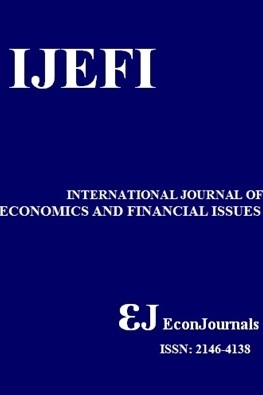The Concept of Smart Economy as the Basis for Sustainable Development of Ukraine
The Concept of Smart Economy as the Basis for Sustainable Development of Ukraine
Smart economy sustainable development, innovation network, Ukraine,
- Başlangıç: 2011
- Yayıncı: İlhan ÖZTÜRK
Strategy of Disruptive Innovation in Emerging Regional Markets: Factors of Success and Failure
Yuliya V. VERTAKOVA, Olga V. RUDAKOVA, Valentina V. SHADRİNA, İskandar S. KOBERSY, İrina N. BELOVA
University 3.0 as a Corporate Entity of Knowledge Economy: Models and Missions
Funds Management as Relation System in Business Company for Highly Effective Finance Administration
Natalia B. Golovanova, Elmira A. Asyaeva, Sofia A. Gavrilenko, Alla V. Temirkanova, Alexandr A. Sokolov
Peculiarities of Isolated Clusters Operation
Anastasiya A. Sozinova, Sergey V. Novikov, Sergey N. Kosnikov, Galina I. Nemchenko, Elena E. Alenina
Macroeconomic Trends and Features of Regional Economy Development in the 21st Century
İnna L. LİTVİNENKO, Zhibek S. SYZDYKOVA, Sergey N. NOVOSELOV, Natalya N. Novoselova, Maria A. Gureva, Vitaly A. Tupchienko
Economic Zones as a Factor of Increased Economic Competitiveness of the Region
Aleksei V. BOGOVİZ, Yulia V. RAGULİNA, Elena S. KUTUKOVA
Principles of Profit Taxation of Commercial Banks in Russia and Abroad
Elena V. KONVİSAROVA, İlona V. STİHİLJAS, Andrey V. KOREN, İrina A. KUZMİCHEVA, Tatjana E. DANİLOVSKİH
Russian Business Medium: Competition Problems
Ruslan D. Sadriev, Khanif S. Mullakhmetov, Elvir M. Akhmetshin
Features of Development of Regional Economy and Macroeconomic Trends in the XXI Century
Yulia Y. MYAGKOVA, Lyudmila E. ZİMOVİCH, Yuliya V. ALEKSAKHİNA, İrina V. KHAİBULLİNA, Svetlana S. NOSOVA, Svetlana V. LYUBİMTSEVA
